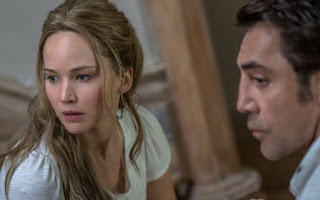Victoria and Abdul
I couldn’t stop shaking my head after watching Stephen Frears' Victoria and Abdul - not because of what I had just seen but because of why so many critics condemned the film. I have frequently criticized film critics for not paying enough attention to the moral compass of a film; for acclaiming certain well-made films which I felt should have been denounced for some of their content (especially the myth of redemptive violence). The film It is a recent example. So imagine my surprise when the critics finally condemn a film for its lack of a moral compass, only to see them do so on rather flimsy grounds.
Victoria and Abdul tells the story of Queen Victoria’s relationship with an Indian Muslim named Abdul Karim near the end of her life (1900-1901). Karim (Ali Fazal) is sent to London to present a commemorative coin to the queen (Judi Dench). Victoria is impressed by Karim’s manner and handsome features and, to the consternation of her son, Bertie (Eddie Izzard), and her entire household (led by Sir Henry, played by Tim Pigott-Smith), Karim becomes Victoria’s spiritual advisor and close friend, eventually bringing his wife and mother-in-law to live with him at the palace.
Victoria and Abdul begins with what I read as a disclaimer, that it is “based on true events … mostly.” When I read those words, I assumed the film was actually taking quite a few liberties with reality and should not be viewed as anything like a reliable historical account. But the strongest criticisms of the film all refer to the way it whitewashes the queen and British colonialism.
I know the history of Victoria’s empire and British colonial oppression in India well enough to say that if the film was trying to provide any kind of accurate historical commentary, it should indeed be condemned, because it paints Victoria with a very sympathetic brush, making her seem like a queen trying to promote anti-racism and religious tolerance in defiance of all those around her, and it paints Karim as a naive star-struck innocent who adores the queen and quickly devotes his life to her. Of course that doesn’t reflect the reality of life in India at the time or tell us what Victoria was really like (and there is a character in the film, namely Mohammed, played by Adeel Akhtar, who continuously condemns the colonialist attitudes around him and is angry with his friend Abdul). Whatever the true story of Victoria and Abdul might have been, this film is but a light-hearted take on it (almost a farce) and does not deserve to be condemned as skewing history.
This doesn’t mean that viewers shouldn’t be made aware of the true history and realize how inaccurate the portrayals are, and that the lingering effects of British colonialism around the world continue to be responsible for much suffering. But watching Victoria and Abdul on its own terms allows us to smile at what might have been, while admiring the way the film itself is clearly condemning racist, classist and intolerant attitudes. And how many films these days give us a sympathetic Muslim protagonist (who, regardless of his flaws and apparent naiveté, is nevertheless portrayed as a kind intelligent man)?
As for Victoria and Abdul as a film: The acting is solid throughout (Dench, as usual, is magnificent), the cinematography is outstanding, with each scene carefully framed, the score is more than good enough and the writing is (given the above) often excellent. My strongest criticism is that we don’t get enough character development for Karim, either by way of a backstory or by way of his family life. The film also tells its story in too formulaic a way. Either more of an effort to make it a farce or more dramatic tension might have been helpful.
Nevertheless, in my opinion, Victoria and Abdul deserves at least a solid *** (if not ***+ for Dench’s performance alone). My mug is up.


Comments
Post a Comment